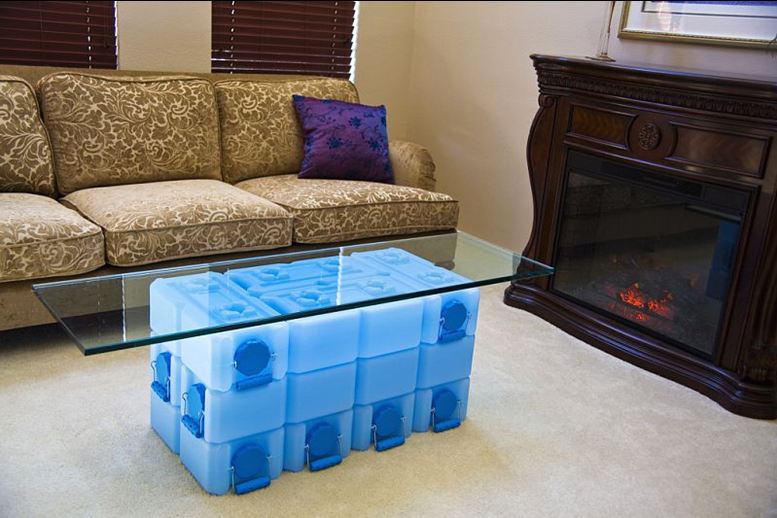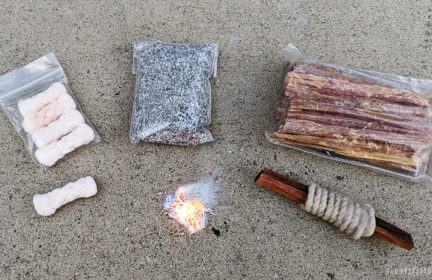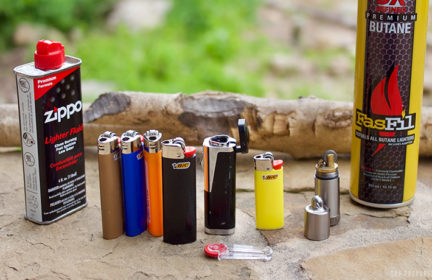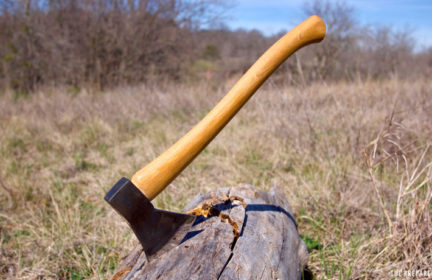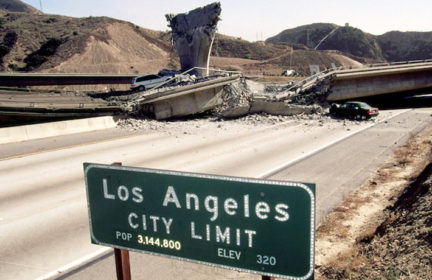Urban preps for the concrete jungle: what are your hacks?
NYC prepper here, wanting to open up some space for those of us who don’t have rural, off-grid locations or New Zealand villas in which to ride out ailments of the universe. What preps are you most proud of or what are some cool hacks you’ve figured out in dealing with small-space prepping? How have you adapted some of the standard prepping protocols for your own unique situation? Would be nice to have ongoing sharing and discussion.
-
Best Replies
Rich DCContributor Rich DC - May 13, 2020
DC Metro Area, here. A lot of it is just space maximization, like having a sofa with 6 inch legs freeing up room to store stuff underneath, or the hollow box-spring from ikea (again with the longest ‘legs’ I could buy for underneath storage). Also, +1 to the water bricks, while not the cheapest option are really flexible (mine are on the bottom of my closet and I store stuff on top of them).
Researching your local geography is a good idea too. For example the nearest “stream” is also a combined sewer overflow – so like, I won’t be going there in desperate times, even if its the closest “natural” water source (gotta love “historic’ cities…).
Frankly, part of it is a semi-fatalistic outlook… I figure if I need more than a month’s worth of supplies I’m probably SOL and/or “bugging out” to nearby relatives with more space. I can’t really store more than a month’s worth so I just don’t worry about it beyond that, but a month is a lot more than many do. Helps with budgeting too.
Also, just trying to pay attention and being slightly-ahead of the curve. I had 20 N95 masks on hand by summer 2019, more for a 9-11 like scenario (Pentagon isn’t too far from here… we had an anthrax scare not long afterwards) but thats obviously come in handy now. I had “emergency food” in place back when demand was low (monitored prices, bought on sale!) and between watching the Netflix “Pandemic” special, rewatching “Contagion” and reading this site and the normal news thought to myself “hmmm… maybe hand sanitizer and *some* extra toilet paper would be a good idea” in January (rather than coming to that conclusion in March when everyone else around here did). An extra month helps a lot, though that was more luck for me.
Jon StokesStaff Jon Stokes - May 19, 2020
IMO the number one most overlooked urban prep is a good set of bolt cutters, and generally anything that lets you create access is good. If SHTF in a big city, you’ll want to be able to get into locked and secured structures for supplies, shelter, hiding, etc. So bolt cutters, a demolition tool (like a tactical tomahawk), and so on are my main urban prep recommendations that I think are often overlooked.
-
Comments (60)
-
John AdamaStaff - May 13, 2020
Lived in NYC as well. I didn’t do it at the time, but have friends who have since used WaterBricks as furniture. Kind of a two birds one stone thing, given the limited space. They are pretty sturdy and stackable, so you can make a little end table and then put a piece of wood on top for the table surface, then drape a cloth over it. Looks kind of chic and can hold multiple weeks worth of water just in one little end table.
Picture this, but cooler:
We reviewed the WaterBrick and given it’s high price, this kind of limited-space situation was one of the few times we thought they were worth it. https://theprepared.com/homestead/reviews/best-two-week-emergency-water-storage-containers/
-
FPV California - May 18, 2020
That’s pretty good using the water as a table base. I’m not sure I would trust the lids on their sides though.
Try covering the containers with some nice cloth so no one can tell they’re under there.For me I have a few steps up to our entry door. I cut an access hole on the side and put the water under there. Then covered the hole with a door and a small padlock.
-
John AdamaStaff - May 19, 2020
FWIW, in our testing I wasn’t comfortable with the seal on the side either. Didn’t directly notice any problems, but just don’t want water pressing against an exit for years. You could position them vertically so the cap is on top, but lose some stackability.
-
-
Rich DCContributor - May 13, 2020
DC Metro Area, here. A lot of it is just space maximization, like having a sofa with 6 inch legs freeing up room to store stuff underneath, or the hollow box-spring from ikea (again with the longest ‘legs’ I could buy for underneath storage). Also, +1 to the water bricks, while not the cheapest option are really flexible (mine are on the bottom of my closet and I store stuff on top of them).
Researching your local geography is a good idea too. For example the nearest “stream” is also a combined sewer overflow – so like, I won’t be going there in desperate times, even if its the closest “natural” water source (gotta love “historic’ cities…).
Frankly, part of it is a semi-fatalistic outlook… I figure if I need more than a month’s worth of supplies I’m probably SOL and/or “bugging out” to nearby relatives with more space. I can’t really store more than a month’s worth so I just don’t worry about it beyond that, but a month is a lot more than many do. Helps with budgeting too.
Also, just trying to pay attention and being slightly-ahead of the curve. I had 20 N95 masks on hand by summer 2019, more for a 9-11 like scenario (Pentagon isn’t too far from here… we had an anthrax scare not long afterwards) but thats obviously come in handy now. I had “emergency food” in place back when demand was low (monitored prices, bought on sale!) and between watching the Netflix “Pandemic” special, rewatching “Contagion” and reading this site and the normal news thought to myself “hmmm… maybe hand sanitizer and *some* extra toilet paper would be a good idea” in January (rather than coming to that conclusion in March when everyone else around here did). An extra month helps a lot, though that was more luck for me.
-
Jon StokesStaff - July 9, 2020
My main advice for urban prepping is always around access tools — this is probably because I lived in earthquake-prone San Francisco for five years, and it’s where I got my start as a prepper.
So I’m always thinking of things like bolt cutters, fire axes, prybars, and other tools that will let me get into locked structures, or create holes in structures for various reasons.
In other words, “urban” to me means “lots of man-made structures to get into and out of,” so the tools that let me do that are the first place my mind goes when I’m thinking about urban prepping.
-
Illini Warrior - September 27, 2021
just keep in mind that just because a building looks unoccupied doesn’t mean it is – nobody will be answering the door or showing their face until you’re in their perfect ambush spot for the weapon they have ….
it’s looting no matter what you care to call it – and eventually, you’ll either get murdered or become a murderer defending yourself against the property inhabitor/owner ….
-
-
Ef Rodriguez - May 13, 2020
I recently heard people talk about sillcock keys to access urban water sources (like a water valve on a commercial building). Anyone done this?
-
Tom RaderStaff - May 20, 2020
I do carry them in my kits. I found out about them while doing an urban adventure challenge. They were very useful for refilling water from buildings we passed by.
-
shtfhappens - July 12, 2020
@Tom Rader so does that mean you’ve actually used one and it works? What would you guess the success rate is for a random commercial building? In other words, if you have a sillcock key, do you think you could get water from 20% of the buildings in a city?
-
Matt Black - May 26, 2020
Great idea! (Note to self!)
I just ordered one for water, gas, and electric.
-
Matt Black - May 27, 2020
Now I’m wondering if I got the right thing… If anyone in this thread can provide a little guidance, it would be very helpful.
-
John AdamaStaff - June 2, 2020
@Matt TBH I’m not sure. It looks like it should work, but I don’t know why the left the word sillcock out of the title. You’ve probably received it by now… if you care to try it, reply here or make a new topic to share if it’s usable?
-
Matt Black - June 2, 2020
Yeah, I don’t know why they left “sillcock” out of the title either. Maybe some ridiculous decency filter or policy? LOL
Haven’t had an opportunity to check it out yet, but will definitely drop post here. Most days have been spent busy and most night have been spent monitoring…
-
rangerjohn - September 25, 2021
I could be wrong but it looks like a control cabinet key to me.
My silcock Key has four square holes, one on each end.
I would like to get a cabinet key.
-
Zabeth - June 21, 2020
Yes, I have a sillcock key in my preps and have watched a good YouTube video on how to use it. Haven’t tried it out yet though 🙂
Zabeth
-
Alicia - July 4, 2020
Silcock key is also in my GHB, BOBs. The one you are showing is to get into meter and commercial electrical boxes. It may also do water faucets (silcocks). I was wondering if getting into the boxes would be helpful of late.
-
Illini Warrior - September 27, 2021
in regard to sillcock keys – you need to do some research into what is common in your area of the country – it varies – it also varies by the age of the plumbing installation >>> new installs into urban commercial buildings are going to a regular key on the security door to protect access from the “urban campers” …
if the grid is down with no water pressure – there could still be a limited amount of plumbing pipe trapped water – a low spot like an outside faucet could provide a sizable gravity drain from a multi-story building …
-
-
pete - May 15, 2020
Study your terrain. In a city you’re in a three dimensional world, rooftops above and metro/sewer/water systems below. Learn how to exploit the full potential of place. In urban combat often the street is the most dangerous place to be. Using unseen routes high above or underground change the map.
-
John AdamaStaff - May 17, 2020
Excellent point about being more 3D!
-
Thomas G - May 18, 2020
Brilliant. If I have to get out of my city, I am going to sneak out via the river/forest that flows through it. I can stock up on water and tinder if necessary.
-
Matt Black - May 23, 2020
And definitely consider bike paths and park hiking trails as options.
-
Matt Black - June 2, 2020
(forgot to mention railroads)
-
-
Jon StokesStaff - May 19, 2020
IMO the number one most overlooked urban prep is a good set of bolt cutters, and generally anything that lets you create access is good. If SHTF in a big city, you’ll want to be able to get into locked and secured structures for supplies, shelter, hiding, etc. So bolt cutters, a demolition tool (like a tactical tomahawk), and so on are my main urban prep recommendations that I think are often overlooked.
-
Tom RaderStaff - May 20, 2020
Agreed. I keep bolt cutters in my truck at all times.
-
Matt Black - May 26, 2020
Great idea! (Note to self!)
-
rangerjohn - September 25, 2021
Bolt cutters, Stanley Fubar, Dead On Annihilator, and tactical tomahawk all in the truck, lockpick set for luck.
I also keep a portable door lock as part of my EDC. Sometimes keeping a door closed is as important as opening a door.
-
Illini Warrior - September 27, 2021
already commented on busting into locked facilities – you should be prepping to avoid looting and not prepping to loot better ….
I keep a small set of bolt cutters in the vehicle specifically for any emergency exiting off the interstate – talking a “do or die” type SHTF and not some BS traffic jam up >>> some interstates cut the old existing roads or created a locally used parallel running access road – a chain link fence separating an operative way off a stalemated clogged interstate – make sure you are first in line with your vehicle after cutting the fence – you’ll have an audience and a bunch of eager followers behind you …
another usage for the bolt cutter getting off the interstate >>> some of the weight scale facilities, rest areas and retail ops have a padlocked back gate to a local road in the back …
-
rangerjohn - September 27, 2021
Good morning Illini Warrior,
Didn’t mean to imply that I was/am prepping to loot better. Being a country mouse, I generally got to solve my own problems. So I keep a bunch of problem solvers around.
Totally unrelated, I had use my lockpicks at work tonight. Someone locked their keys in their locker.
-
Illini Warrior - September 28, 2021
see wayyyyyy tooooooo “bolt cutter and lock pick” preppers >>>
current posting at Reddit prepper pics – “I’m all ready” – pic of his bug out bag laid out on the floor – not one ounce of food and not even a water bottle or canteen >> but he has his survival bolt cutters and an array of knives – not much other intentions but to go house to house raiding his way to survival ….
-
Conrad B - September 28, 2021
Illini, did you ask them what their plan was for food and water? It’s easy to assume that their plan is just to go house raiding, but maybe they had a side bag just with food and water or hadn’t added it to their pack yet.
-
Conrad B - September 28, 2021
Prepping in action! What are some of the locks you have been able to unlock with your lock picking skills? Unlocking a car door would be a good skill to learn because people lock their keys in their cars all the time.
-
Conrad B - September 28, 2021
That is a scenario that I hadn’t thought about before, being stuck on an interstate and having to cut through the near by fence to get out of a traffic jam that won’t clear up like after an EMP but your car might be working. You guys sure are thinking of everything.
-
rangerjohn - September 28, 2021
Good evening Conrad,
My skills in the lockpicking community are really basic.
With padlocks around 80 to 90% success rate.
Cars pretty close to 100%. Disclaimer, with cars I don’t pick the lock. I bypass it.
Building doors under 5%, don’t know why.
-
-
Mary Ellen Feinberg - May 22, 2020
I’m in NYC also. One challenge many of us city dwellers have when sheltering in place in a pandemic compared to suburbanites is getting laundry done. I don’t have laundry facilities in my building, so I usually go to a laundromat, but self-service ones are closed now. Drop-off or pick up/delivery (contactless) are available, but that gets to be expensive just when finances are tight. So, I found on eBay a used “Wonder Wash,” a portable, hand-operated washing “machine.” It’s basically a drum you rotate by hand to agitate the clothes for a couple of minutes, then it drains into the tub. It’s surprisingly effective. I also got some no-rinse detergent which makes things easier, and I just ring everything out and put it on a drying rack. I’ve also seen a portable clothes agitator that basically looks like a plunger that you can use in the bathtub or in a bucket. Anyway, I do very small loads every couple of days, and then I don’t have to send laundry out that often.
Laundry doesn’t seem to make it too often into prepping discussions. Obviously you can always just wash things by hand, this just makes it a lot easier.
-
John AdamaStaff - June 2, 2020
Thanks for the data point about it working well for you. We do plan on putting a laundry guide together.
-
Hazard Awareness - June 2, 2020
My wife had gotten a (portable?) washing maching for ~$75 that pretty much functions like the normal kind but is substantially smaller. Still needs electricity and running water so its probably not the best prep item, but it worked for her for while she was in a cheap apartment and otherwise needed to travel to do laundry.
-
Hardened - June 2, 2020
Good call on the washing machine. I bought a GE machine that’s basically a full size automatic washer and I connect it to my bathroom sink so I don’t have to use the communal laundry room any more.
-
Alicia - July 4, 2020
Agreed on the Laundry topic. I’ve done some of this while traveling and thought through the home-without-power ideas but not tested them much. The fabrics while sheltering in place are very heavy compared to what is in the BOB, for example. So considering laundering effort required in outfit choice is also on the list in this situation.
Detergent: I now only use powder detergent (considering making my own). It’s cheaper, lighter, and stores better (less volume per load and if it leaks, there is much less mess to clean up).
Washing: For home, it’s a bathtub with actual toilet plunger. So your experiences and advice here will inform and improve on this plan. Thank you in advance! I’m considering a Scrubba for travel . The Scrubba is basically a drybag with nubs on one side to help with agitation and a vent to let out excess air. For the BOB, and possibly travel, a drybag would possibly suffice, also pack smaller/lighter and serve another purpose in pack organization.
Drying: Wring out, roll in a towel then hang. I have several bungee cords clotheslines that I can hang in specific locations as they store much smaller than a drying rack. Some need stronger suction cups to attach to the glass or tile, while others can do loops or hooks. Most needed to be longer than standard travel options so I purchased the cord and made one large loop. I then twist the two lines (a lot) and pull thru the item between or drape it over the top depending on need. Could possibly work with paracord as well.
-
rangerjohn - September 25, 2021
I have a Scrubba in my bag with a McNett gruntline, and a bottle of Dr. Bronner’s. Laundry done.
At home, tub & plunger, if the washing machine is dead.
-
-
Hazard Awareness - May 27, 2020
I live in the biggest city in my state, but not the most urban part. My biggest fear is a fire, in an apartment complex any other bozo can burn down the building and all I could save is a BOB.
-
Sun Yeti - May 29, 2020
Funny you mention that; there was a small fire below us in my apt complex last night. It got caught before it was a disaster, but it made me think. If we’d had to run with nothing but the cat and a bug out bag, in the middle of a pandemic, that would certainly be doing it on ‘hard mode’.
-
Hazard Awareness - June 2, 2020
I asked my wife (she’s not a prepper) what we would have time to grab if there was a fire, and her answer was “the cat.”
I thiiiink I have “permission” now to pack a BOB without her questioning my sanity. -
Alicia - July 4, 2020
Go, go, go!!! Start while it’s still fresh. I am fortunate to have a supportive husband for my prep hobby, but he’s now appreciative vs. only supportive.
-
-
Hardened - June 2, 2020
I’m also in NYC and bought a ton of wire rack shelving for both general storage and growing food. It’s easy to hang grow lights under the shelves.
I don’t have much window space, especially with the air conditioner, so I bought a 5′ high industrial shelf that I’m using as a window seat. It helps me to feel like I’m closer to the outside world.
I bought a TV and I keep this live camera of a Hawaiian beach on it all day to help with cabin fever: https://explore.org/livecams/hawaii/hawaii-pipeline-cam
I’m stacking my WaterBricks in the hallway near the front door to use as cover in the unlikely event of a home invasion.
-
shtfhappens - July 12, 2020
Love the idea of using waterbricks as shields. For basic pistol rounds I’d think they would be decently effective!
-
-
Alicia - July 4, 2020
My family members that moved (back) to NYC from LA referred to it as yacht living. Everything you need in a very small package. I’ve lived in some pretty small places in my time as well. As folks here have mentioned, you must maximize your storage space. Below are some ideas from my experiences in places where I was renting and owned or knew the owner well.
Helpful shelves I’ve added to apartments: kitchen cabinets – one additional shelf can typically be added and even 3-4 inches is helpful; Second shelf above closet rod/shelf and in some older homes with tall ceilings, several; Above the overhead garage door – on wall and suspended from ceiling; Above washer/dryer (or a cabinet if you can); Above the toilet; In the utility closet/space around the HVAC and/or water heater – be sure to leave vent space where it’s needed; Above the kitchen sink; Back of cabinet door bins; Under sinks shelves in back or sides – the upper space is often missed here;
Custom storage that can used for prep or free up other locations for prep storage: Shallow kickspace drawers at the floor of cabinets – these are painful but doable after a cabinet is installed, easier before installation (kitchen, bathroom or linen closet); Trap doors or other access to under deck spaces; Access to dead space under stairs or formerly inaccessible attics; Sink tip outs – these are installed in the ‘blank’ drawers in front of a sink; Custom storage in a closet – really can maximize the use of it; Recessed shelves and medicine cabinets; Access to kitchen dead corners – added a door to the ‘outer’ side in the ‘other room’.
Underutilized or created hidden areas: Under sinks – put in a couple water bricks in the back as they won’t have issues with leaks from faucets if that’s a concern; Under sofas – already mentioned Ikea hollow sofas – see Ikea Hacks for more ideas like adding their storage bins like drawers; Under beds – purchase feet to elevate then add dust skirt or get a storage platform; Under draw organizers: most kitchen drawers are 6″ deep while the utensil bins are only 2-3″ – put a strong, shallow box under these with smaller prep stuff; Behind books on bookshelves: instead of having space in front, put a box behind the books; Kitchen dead corners – Use for prep as it’s so hard to access. Behind a large furniture piece: Media cabinets or dresser that is turned in a corner makes a large triangle of storage space behind it; Similarly behind a headboard of a bed – Maybe shallow or could be more purposefully deep if bookshelves are the entire wall behind it – then there’s bed-covered cove with possibly an upper artwork one to match.
-
Jon StokesStaff - July 9, 2020
My main advice for urban prepping is always around access tools — this is probably because I lived in earthquake-prone San Francisco for five years, and it’s where I got my start as a prepper.
So I’m always thinking of things like bolt cutters, fire axes, prybars, and other tools that will let me get into locked structures, or create holes in structures for various reasons.
In other words, “urban” to me means “lots of man-made structures to get into and out of,” so the tools that let me do that are the first place my mind goes when I’m thinking about urban prepping.
-
Jonnie PekelnyContributor - July 11, 2020
I have a question for you urban folks. What’s your strategy in a power outage? Obviously, in the city there’s no opportunity to run a generator, either a gas one or a solar one. How do you provide for your basics, like cooling or heating and whatever essential gadgets you might need to run?
-
shtfhappens - July 12, 2020
I would think you could still use the backpacking or briefcase-style solar panels? Hang them out of a window, on a balcony, or whatever? Would that not work?
If you’re near running water, maybe one of those water-powered generators would work? I’ve never used one but it seems like you could find flowing water in a city without too much trouble.
But to your main point, yeah, clearly an urban apartment unit isn’t going to have their own solar or generator grid.
I’d think your best bet is to stock up on portable solar and battery banks. In other words, if you can’t make the electricity, at least you can “store” it as you would any other resource you think will be scarce in your situation.
-
Hardened - July 14, 2020
I agree with this. I bought a battery + solar panel combination from Goal Zero. It wouldn’t be enough to run a refrigerator but it could keep laptops and cell phones going for a while.
-
John AdamaStaff - July 18, 2020
@Hardened, what did you buy? Our field testing of solar and batteries last year did not go well for Goal Zero. If you care to, would be great to see your input as we try to keep tabs on all the products out there.
-
-
FPV California - July 18, 2020
Not really an urban hack, more of a suburban hack. I have enough drinking water for 2 weeks for my family, but I don’t want to waste it on things like flushing the toilet or washing.
We have a community pool in my neighborhood, so after an earthquake and once things are safe my plan is to take the water out of the pool and store it in trash cans lined with garbage bags.
The hack is a folding utility wagon that can carry three to four 5-gallon buckets of water. I figure if the water supply is shut off and I have time on my hands I can snag a bunch of water to keep at my house.
I think the wagon could also come in useful if there are long gas lines. Rather than wasting gas driving my car I could just stand in line with the wagon and a bunch of gas cans.
Also if it turned into a long term thing where drinking water had to be distributed, the wagon would greatly multiply how much water I could carry.
Finally if I just had to bug out on foot, the wagon would allow me to travel more miles per day since I wouldn’t have to shoulder so much, and my youngest daughter would be able to ride on it if she was tired.
A step up from this would be a rickshaw, or something designed to be pulled by an adult with better ergonomics.-
rangerjohn - September 25, 2021
Collapsible wagons, mine is used frequently for transporting groceries from the truck/van up to the house.
-
Jay ValenciaContributor - September 26, 2021
That’s what I have children for, they are good pack animals… 😉 just kidding. Good kids though, wouldn’t trade ’em in for anything.
-
Illini Warrior - September 27, 2021
good hack for the manhandling of 80lbs of water over rough terrain like overland or busted up/trash filled streets >>> old fashion shoulder yoke <<<
two 5 gallon water jugs – pole thru the carry handles >> a prep prepared yoke with a neck “U” and padded for some comfort would be best …
https://permies.com/t/60322/Carrying-Pole-Shoulder-Pole-Milkmaid
-
Jay ValenciaContributor - September 27, 2021
Wow! I hadn’t thought of a shoulder yoke in years. Lehmans wants $170 for one!? I can make one for 1/10th of that price with some scrap wood.
Could be a fun wood working project this winter and give me some good carrying capacity.
-
Bob - September 28, 2021
Good morning Illini Warrior,
A few weeks ago I posted here at forum something I saw when visiting a Peace Corps friend.
It was a “water wheel”. Holding about 5 gallons of drinking water, it loos like a wide motorcycle tyre. The axel is rigged to accept a rope on both sides for pulling.
Had tried to get info on it so as to get one. The official Peace Corps site did not reply. Tried a FOIA – Freedom of Information Act – request. They have no records. Am sure no Asian country funded their development; the $ were US surely. Of course, could be wrong; maybe it was an Asian development.
……
I’ve got here a photo – not mine; I did not take it – of a young woman probably no more than 16 y.o. Vietnamese, carrying a bamboo pole with both ends split. On each end were 3 mortar rounds, fins up.
This was heavy even for a strong soldier. Young woman helped their combatants.
We know who won that war.
-
Illini Warrior - September 28, 2021
I know that “barrel” rolling water container – used to have a link to the company – it was something like “Rolla” – haven’t thought about it for years – wasn’t cheap …
-
JennyWren - September 28, 2021
A few weeks ago I posted here at forum something I saw when visiting a Peace Corps friend.
It was a “water wheel”. Holding about 5 gallons of drinking water, it loos like a wide motorcycle tyre. The axel is rigged to accept a rope on both sides for pulling.
Good evening Bob. I got intrigued and did a search, would this be the fella?
-
Bob - September 28, 2021
Good afternoon Jenny,
Yes, that’s it ! Thank you.
I saw an earlier version in Asia holding about 5 gallons. Looked like a motorcycle tire.
This morning was told the Asian version funded by Asian Development Bank (ADB). This is = to being US funded.
It’s a great “invention” for development of impoverished areas.
-
-
- Fun ways to teach kids outdoor/survival skills - 3 days ago
- News for the week of 2025-06-30 - 4 days ago
- News for the week of 2025-06-23 - 2 weeks ago
- News for the week of 2025-06-16 - 2 weeks ago
- News for the week of 2025-06-09 - 4 weeks ago
This forum is heavily moderated to keep things valuable to as many people as possible. Full community policies are here. The basics:
- 1. Be nice to each other.
- 2. Stay focused on prepping.
- 3. Avoid politics, religion, and other arguments.
- 4. No unfounded conspiracies, fake news, etc.
- 5. Debate ideas, not people.
